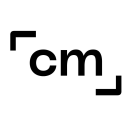When businesses sail toward growth, the excitement is palpable.
Each employee feels like a barrelman in the crow’s nest of a triple-masted ship, and from this vantage point enticing new horizons become visible. The buzz from press releases, social media, increased revenue, new products, new projects and more customers dot the waters like so many unexplored islands.
Yet with growth comes challenges, and scaling each team is one of the largest. Importantly, scaling is different from growth because it entails a company adding revenue at a faster rate than they take on new costs. It’s as if that triple-masted ship — originally built and crewed to explore only three new islands — quickly needs to find a way to handle 10.
In particular, scaling a customer success team is tricky because a limited team size can buckle under the exciting but at-times overwhelming flow of new clients. A common solution to this problem is automation, but if automation is overused or used incorrectly, the results can be unfortunate — and customer success can lose their human touch.
At CampMinder, a platform for camp-management software, Director of Client Success Simon Cundall believes he’s found an answer. By relying on a data-driven approach, choosing the right tech and focusing automation on as many back-end tasks as possible, the process of scaling can be much smoother for both the team and the clients.
We sat down for a conversation with Cundall, and learned much more about how to scale customer success without losing the human touch.
What are the most important considerations when scaling a customer success team, and why?
One of the biggest challenges in customer success is getting the right data to inform decision-making. I like to put an emphasis on collecting and measuring as much of our operations as we can, and with each new process we implement, we try to measure what success looks like.
By incorporating a data-driven focus, we’re able to make the right decisions when scaling, versus relying on hunches or gut checks and avoid bigger issues down the road. I’m also a big advocate for regularly reviewing roles and responsibilities to make sure we have the right level of specialization on the team. As we grow rapidly, it’s important to identify opportunities for specialization, which can, in turn, open new pathways within the organization and create a more engaged team.
What tools or technologies do you use to make customer success more scalable?
We’ve been fortunate to partner with Quala (Quala.io) as our customer success platform and it’s been a valuable tool in helping our CSMs stay up to date on each client’s status, and quickly pick up where they left off before each interaction. It’s also helped us quantify customer health in a new and meaningful way, by capturing CSM sentiment after every engagement with our camps.
Choosing the right platform was critical, and Quala’s ease of use, savvy success plans, and world-class support have been big drivers of our improved success operations, enabling the CSM team to plan their daily workload by reaching out to the right clients at the right time.
We focus on leveraging automation for streamlining our back-end processes and operations, in an effort to free up as much of the CSM team’s time as possible to maximize facetime with our clients.”
How are you striking the right balance of automation and human touch? How do you know which tasks can be automated and which ones are more effective when handled by a CSM?
I think a big part of finding the right balance is understanding your user base. We serve the summer camp industry, whose focus is not on being technology experts, but who want to use CampMinder’s features to reduce time in the office and get outdoors to create meaningful experiences with their campers and staff. Because of this, customer service is a large point of difference for us. We value phone calls, site visits and conference catch ups, and this interaction is an intentional part of our strategy — and the source of many wonderful memories.
We focus on leveraging automation for streamlining our back-end processes and operations, in an effort to free up as much of the CSM team’s time as possible to maximize facetime with our clients. I like to think of this approach as automation enabling connection — reducing wasted time to create opportunities for relationship-building.









